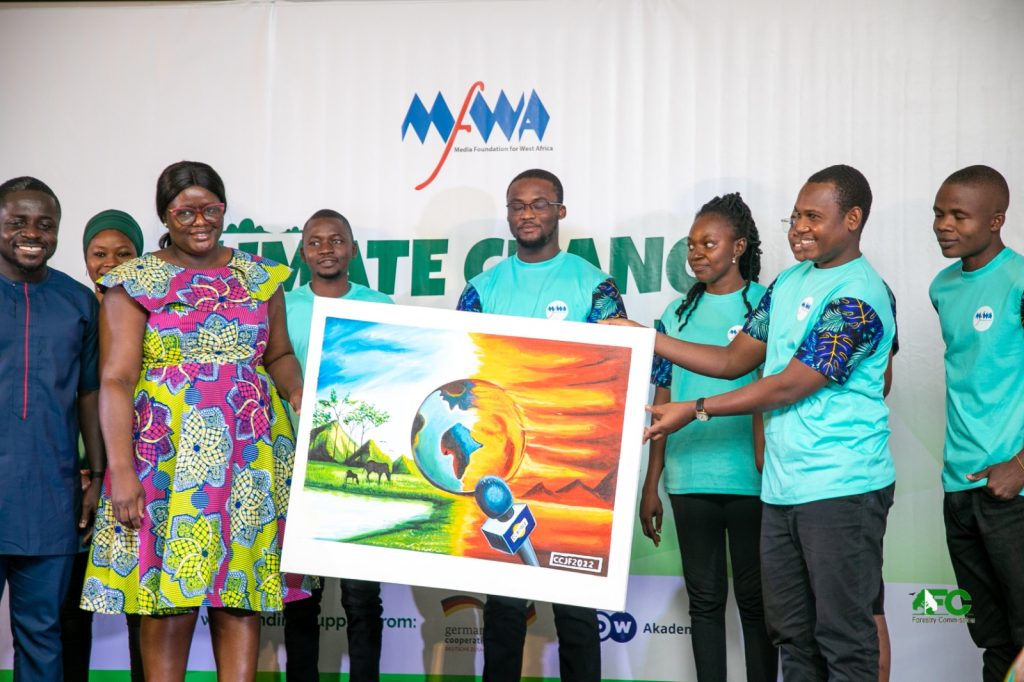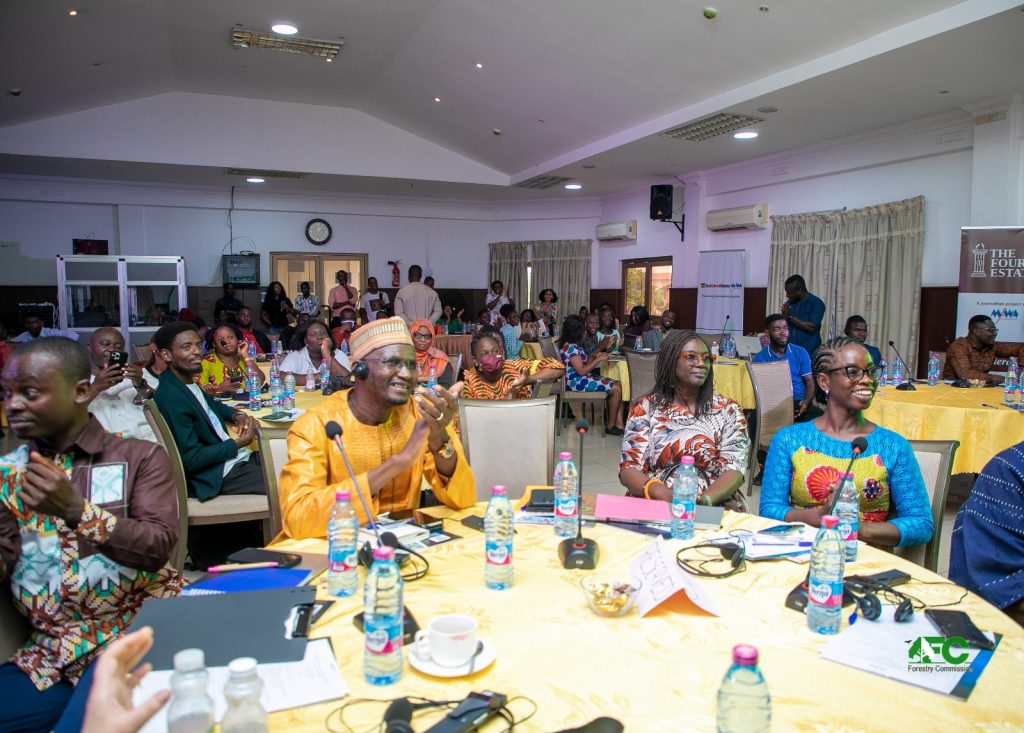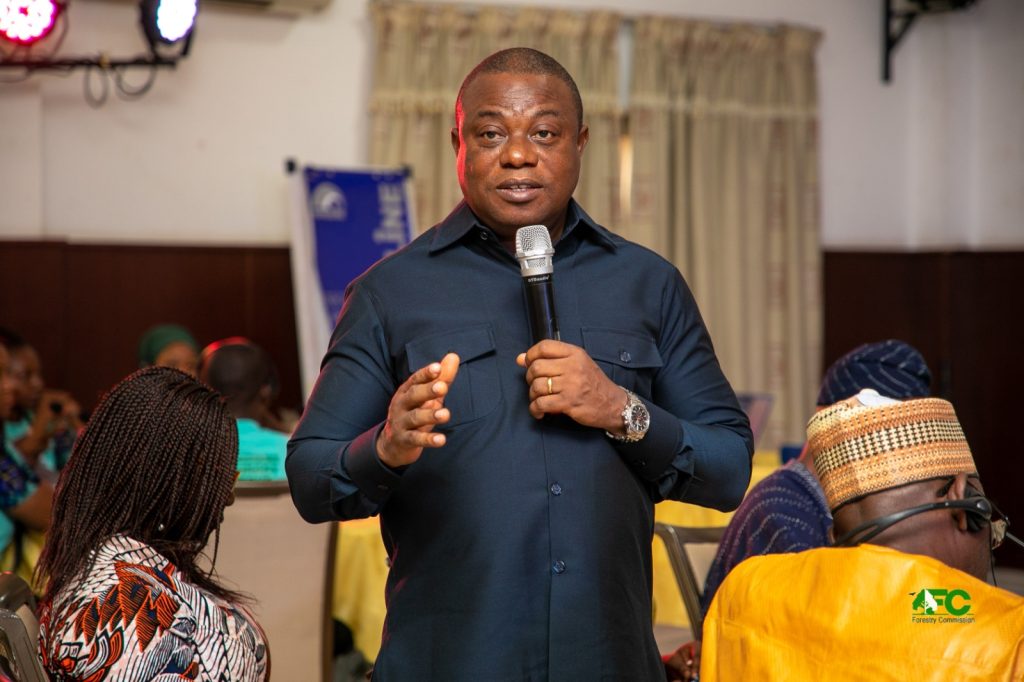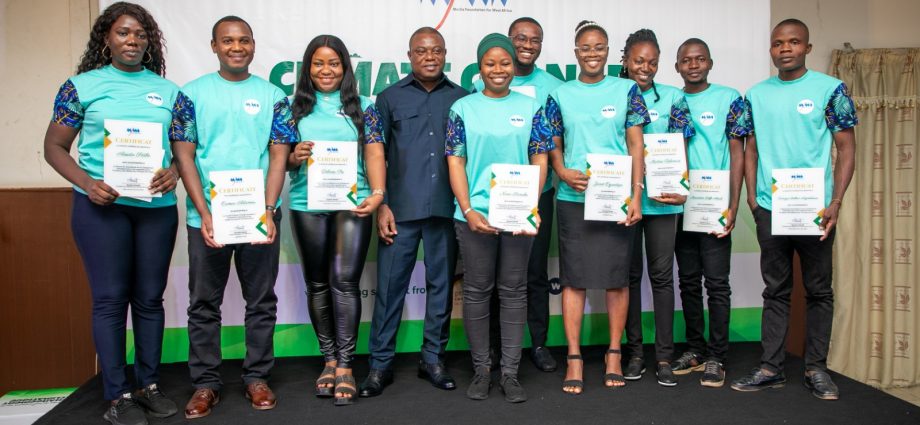“There is the need to understand, streamline and properly communicate climate change related issues in every facet of our lives, as it is going to affect us negatively or positively, whether we like it or not”.
The Chief Executive of Forestry Commission, Mr. John Allotey, made this statement when he chaired and addressed fellows and other persons at the Climate Change Fellowship Program closing ceremony, organized by the Media Foundation for West Africa (MFWA) in Accra.
Over a period of 5 months, the MFWA has trained 10 journalists from 10 West African countries namely Mali, Togo, Burkina Faso, Côte D’ivoire, Ghana, Benin, Senegal, Niger, Nigeria, and Guinea, to equip them with the necessary skills to properly communicate climate change issues.
According to Mr. Allotey, journalists in West Africa are struggling to put out there,information on climate change because they are not properly schooled on the issues. Climate change issues are affecting the continent directly or indirectly.
He advised the youth to be bold to speak to matters affecting them so that they will have a voice in the international space where decisions are taken.
He also encouraged West African youth to come up with their own measures to mitigate climate change, highlighting on the fact that, climate change is a global phenomenon, but they can have their own local solutions, if they set their minds to it.
He encouraged journalists to be audacious, write reports, speak up and stand for something worthwhile. “Don’t be afraid to voice your findings and opinions, be confident and speak your mind”, he added.
As part of the program, a panel discussion on the topic, “Confronting the Climate Change Crises in West Africa” was held. Perspectives were taken from representatives from Forestry Commission, Ghana News Agency, and Ghana Meteorological Agency.
Speaking on behalf of the Forestry Commission, the Manager for Monitoring, Evaluation and Budgeting, from the Climate Change Directorate, Mr. Charles Sarpong Duah, gave an overview of how FC incorporated climate change in the organisation, and how the unit transitioned into a directorate.
Speaking on media reportage on climate change issues, Mr. Sarpong said coverage on the subject is low as more attention has been given to the impacts of climate change such as floods and drought. However, little reportage has been targeted at informing and educating the public on what climate change specifically is all about, and the need to know interventions and how anthropogenic activities affect the climate.
He added that journalists are required to have in-depth knowledge to enable them properly communicate on the subject, and further advised them to include climate change issues in their discussions as agenda setters. “The more we speak about it, the more people will be interested in it”, he concluded.
Beneficiaries of the MFWA were trained on Climate Change reporting, Investigative Journalism, mobile journalism, and training from Google news lab.
Fellows were awarded with certificates and other souvenirs. The Chief Executive presented certificates to some of the fellows and presented the special award in the form of a citation and an undisclosed amount of money to the Ghanaian journalist, Emmanuel Bright Quaicoe, who emerged as the best fellow in writing and speaking.
Mr. Allotey closed the ceremony by expressing his appreciation to the MFWA for bringing the youth on board in such a critical and important area, and for training journalists to specialize and critically analyze climate change issues. He advised the fellows to inculcate and apply all that they have been taught in their reporting and become voices of environmental issues affecting the sub-region.




